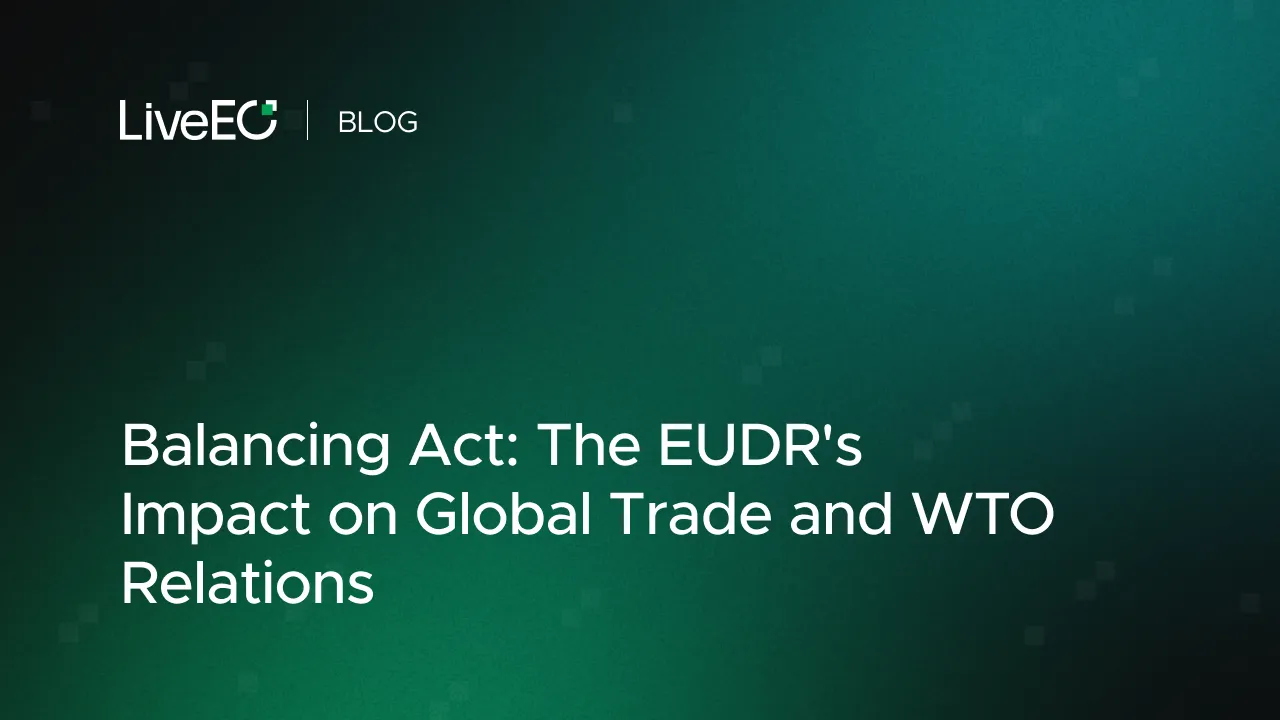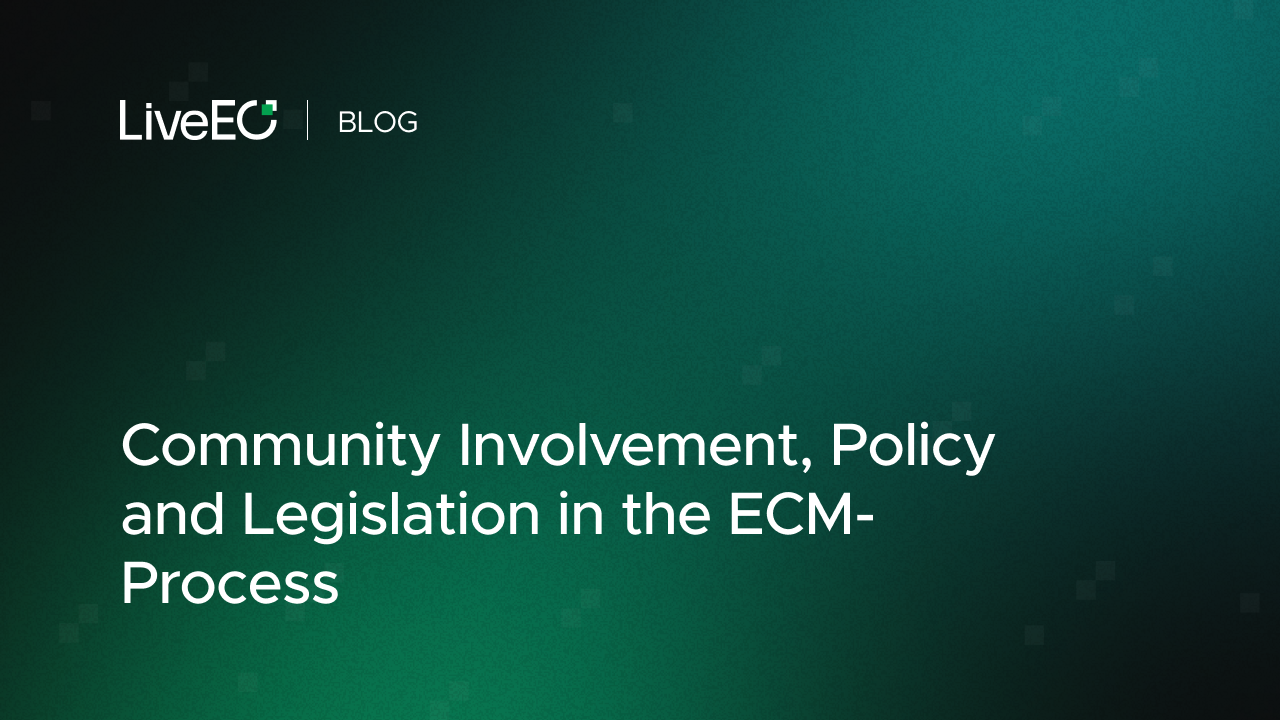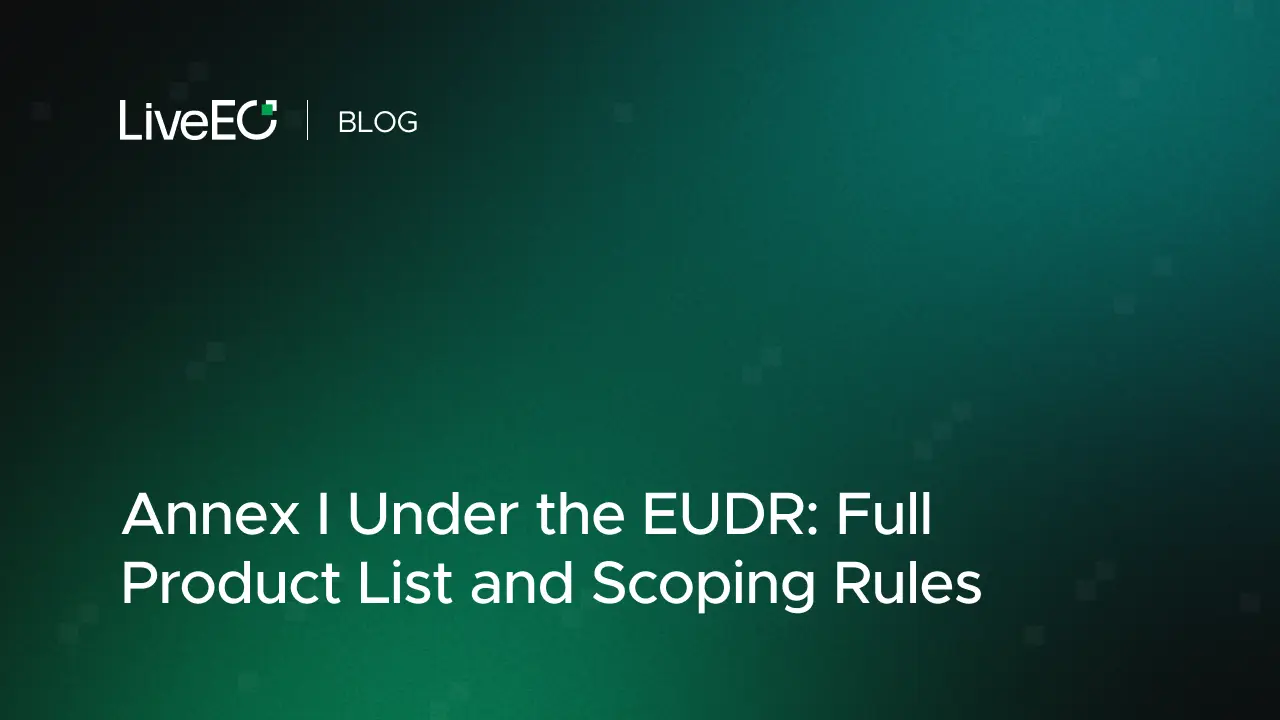Understanding the interplay of regulations within the global space is critical, especially where environmental sustainability and trade intersect.
Notably, the recently enforced European Union Deforestation Regulation (EUDR) and its intricate relation with the World Trade Organization (WTO) demands attention.
The European Union Deforestation Regulation (EUDR)
The European Union's Deforestation Regulation, denoted as EUDR, started as a fundamental part of the European Green Deal. It aims to prevent global deforestation induced by trade policies and practices.
This regulation applies to domestically produced goods and imports, immensely impacting sectors like agriculture, logistics, and supply chain traceability.
Key Aspects of EUDR
- Ensures deforestation-free supply chains.
- Regulates deforestation-contributing commodities like wood, palm oil, cocoa, coffee, cattle, and rubber.
- Demands operators to conduct thorough risk assessments and prepare annual due diligence reports.
- Promotes fair trading practices and explicit support for poverty alleviation.
Read also: Achieving EUDR Compliance: A Guide to Deforestation Data Sources
World Trade Organization (WTO)
The WTO is an international organization addressing the global rules of trade among nations. It's primarily concerned with facilitating trade, resolving disputes, and fostering transparency.
The WTO is also increasingly recognizing the importance of addressing environmental challenges in conjunction with global trade.
Key Functions of WTO:
- Oversees global trade rules and regulations.
- Solves international trade disputes.
- Provides a forum for trade negotiations.
- Assists developing countries with trade policy issues.
Read also: EUDR FAQ Update: Everything You Need to Know
The Interplay of EUDR and WTO
The EUDR's sustainable trade policy, which prevents global deforestation, dovetails with WTO's mission of promoting responsible and sustainable international trade.
However, the regulation has been met with concerns from 17 developing countries that fear the EUDR’s one-size-fits-all approach may not adequately consider their unique circumstances.
This approach has the potential to lead to trade discrimination, affecting global trade relations and the economies of these developing nations.
A recent study by Bruno Capuzzi sheds light on potential conflicts between the EUDR and WTO principles, particularly the challenges the EUDR might face regarding its compatibility with WTO rules.
The study highlights the possibility of discriminatory practices and arbitrary risk assessmentsas the EUDR unilaterally ranks countries based on their deforestation risks. This could influence trade patterns, creating a misalignment with WTO's non-discrimination principles.
{{inline}}
Possible Challenges and Overlaps
- Regulatory Compliance: The EUDR applies to both domestic goods and imports, requiring products entering the EU to be compliant. This necessitates transparency in supply chains and stringent documentation, potentially clashing with WTO rules around fair trade practices.
- Trade Impacts: The regulation's coverage of various commodities could impact trading partners, particularly those economies dependent on these exports. The enforcement of the EUDR might be seen as a trade barrier, raising issues under WTO rules.
Economic Impact on Smallholders
The EUDR could significantly impact smallholders and marginal communities.
The developing countries' submission to the EU and WTO emphasizes the potential economic strain that compliance with the EUDR could impose on these vulnerable groups.
They fear that the stringent requirements may exclude them from international value chains, not due to deforestation activities but due to an inability to meet compliance demands.
This would not only deprive them of income but could also hinder their ability to adopt sustainable practices.
Read also: Understanding EUDR Penalties: 10 Business Implications of Non-Compliance
Calls for Dialogue and Cooperation
The concerned countries have called for more meaningful dialogue and cooperation with the EU to ensure that the EUDR reflects the diverse local conditions and sustainability practices in agricultural value chains.
This is where solutions from companies like LiveEO come into play. With geospatial analytics, LiveEO offers a solution that can help in achieving EUDR compliance while also encouraging transparency and traceability in supply chains.
Such tools could facilitate dialogue and cooperation by ensuring that the EUDR respects local conditions and practices, aligning with both EUDR's intent and WTO's drive for sustainable, fair trade practices.
Conclusion
In conclusion, while the enforcement of the EUDR represents a progressive step towards curbing deforestation and aligns with the WTO's mission for sustainable trade practices, it is not without its challenges.
The potential for trade discrimination, impact on smallholders, and the need for WTO-compatible regulations are critical concerns that must be navigated carefully.
Compliance solutions like those provided by LiveEO could play a pivotal role in fostering global sustainability with minimal disruption to trade, ensuring that the path forward benefits all stakeholders involved.









